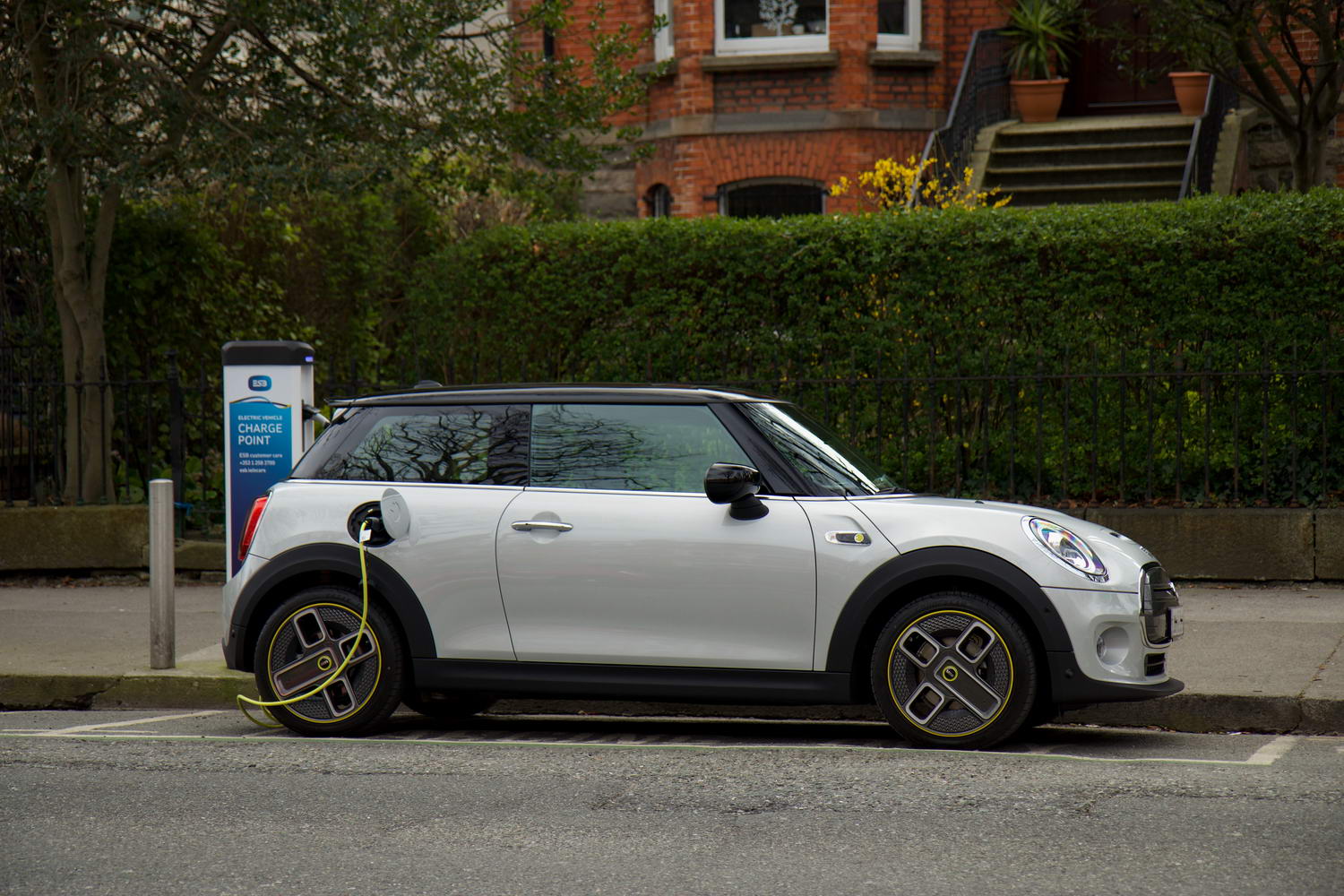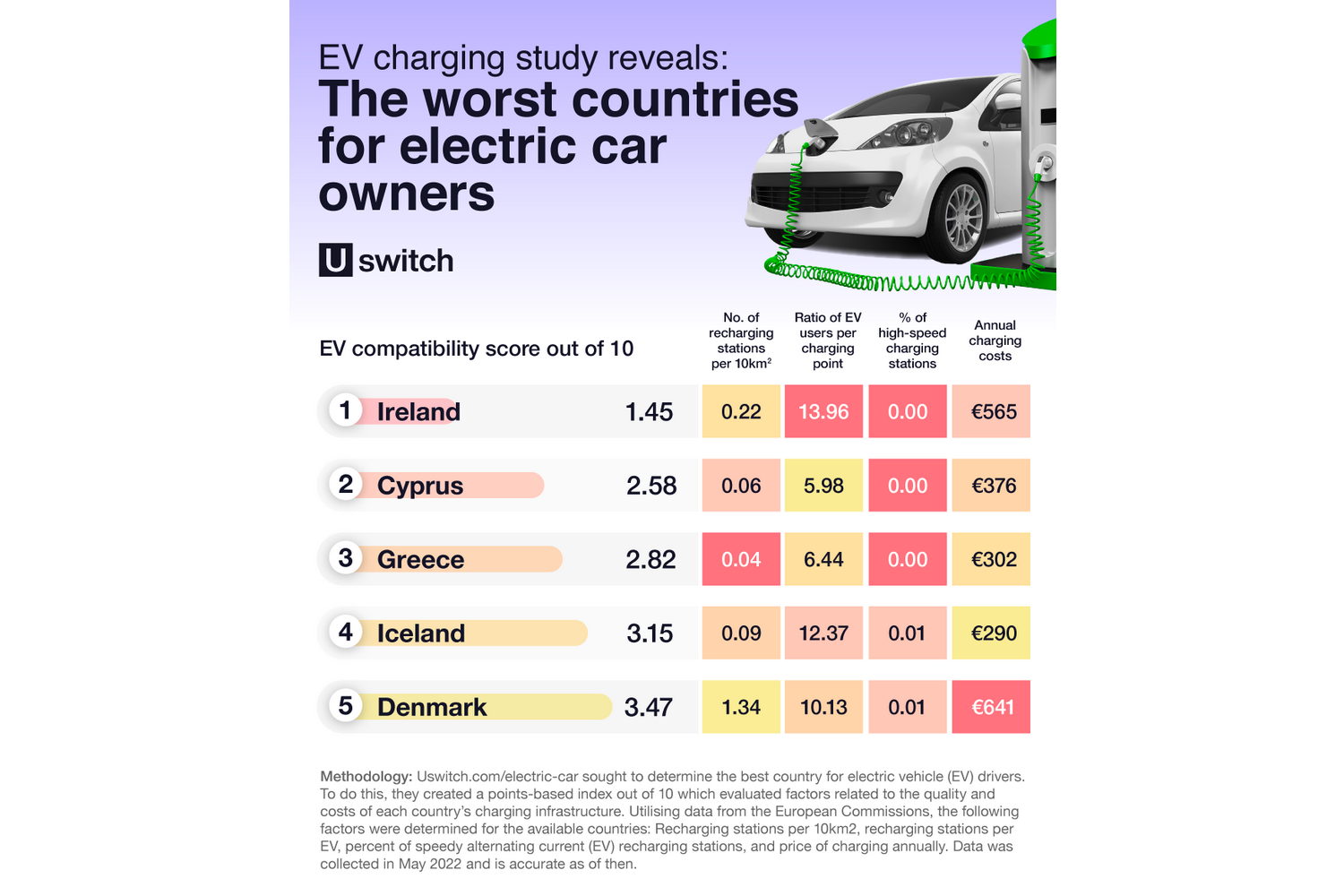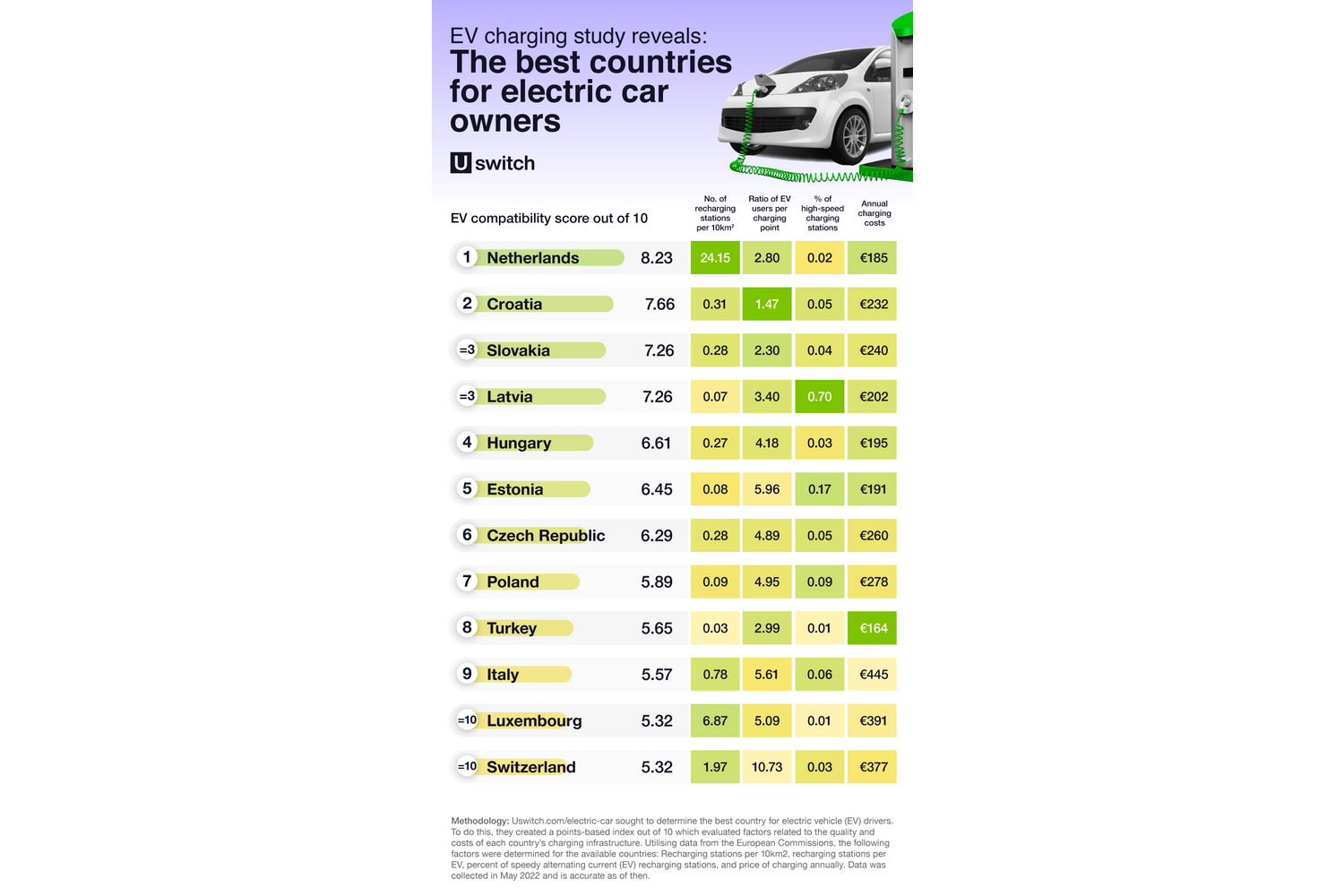Ireland, based on a range of factors, is the worst country in Europe in which to own an electric vehicle according to a new study.
The data, sourced from the European Commission's Alternative Fuel Observatory (AFO) by the UK-based price comparison site Uswitch, has revealed that Ireland falls badly in several areas. These include the number of public chargers per square kilometre, the number of EV users per public charging point, the percentage of high-speed charging stations and annual charging costs. These make running an electric car more challenging and act as disincentives against EV uptake.
Too few public chargers
The Republic of Ireland, according to the AFO, has 1,542 public EV chargers, and, given the country's land area of 69,947km², that equates to just 0.22 public charging stations per square kilometre. This is a low figure compared to the better-performing countries such as the Netherlands (24.15 chargers/km²) and Luxembourg (6.87 chargers/km²), but still ahead of countries such as Spain (0.21), Poland (0.09), Estonia (0.08), Latvia (0.07) and Turkey (0.03).
With around 21,530 electric cars in the national fleet, EV uptake has been reasonably strong, but, although most electric car owners charge their cars at home, public infrastructure has not kept up with the expansion of the EV segment. Ireland has 13.96 EV users for every public charging point, a figure markedly worse than most other European countries for which the data was compiled. Croatia, for example, has 1.47 users per charging point; Slovakia has 2.3; the Netherlands, 2.8. Other countries down the pecking order closer to Ireland include Lithuania (13.68 users per charger), France (13.77) and Portugal (12.71). Only Norway and Malta perform worse with 22.24 and 24.03 users per charging point respectively, the latter example partially explained by comparably huge EV ownership numbers fostered by government incentives and widespread (though apparently insufficient) public charging infrastructure.
High energy costs
The next point at which the study looked was at the percentage of high-speed (faster than 22kW) AC public charging stations. On this point, according to the data, there isn’t a single example of a high-speed AC charger in Ireland, earning the country a figure of zero percent.
This, however, isn’t strictly accurate. Public chargers with capacities higher than 22kW are comparatively uncommon both in Ireland and across Europe more generally, but not to the extent that the Uswitch study suggests. At present there are approximately 62 public AC chargers throughout Ireland which operate at more than 22kW (mostly of the 43kW variety), meaning that the AFO’s data on which the Uswitch study is based is incorrect in this regard. It’s slightly puzzling too, given the relative scarcity of fast AC chargers, that the study did not also take into account faster DC chargers, which likely would also have brought Ireland’s score up, though, overall, not by much.
Another black mark against Ireland was the sky-high annual cost to recharge an electric vehicle. At an average of €564.59 per year, Ireland ranks as one of the most expensive countries to recharge, second only to Denmark (€640.83) and comparing very unfavourably to the likes of Turkey (€164.49), Romania (€170.25) and the Netherlands (€184.59).
Best and worst
One these factors were taken into account, the figures were synthesised into a score out of ten, and, with a mark of 1.45, Ireland was ranked the worst, with the Netherlands coming out on top with a score of 8.23.
Other countries which scored well include Croatia (7.66), Latvia (7.26), Slovakia (7.26) and Hungary (6.61), all ranking well primarily thanks to a combination of strong EV infrastructure and a higher number of chargers compared to the number of EV owners.
Following Ireland's dismal placing, other laggards on the EV infrastructure front include Cyprus (2.58), Greece (2.82), Iceland (3.15) and Denmark (3.47). As green energy innovators, the inclusion of Iceland and Denmark may, perhaps, be surprising. Iceland's EV infrastructure, has not, however, kept pace with the adoption of electric vehicles there and Denmark's particularly high energy costs are what earned it its place towards the bottom of the list.



